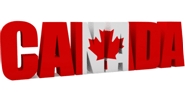Canada

April 27, 2018
Canada Takes Steps to Boost Border Enforcement
Written by Tim Triplett
Just days before the U.S. is due to announce if it will extend the steel tariff exemptions it granted to its closest trading partners, officials in Canada announced plans to strengthen border enforcement to prevent transshipments and diversion of unfairly priced steel into North America.
It’s difficult not to see a link between Canada’s announcement and the May 1 deadline for the Trump administration to decide if Canadian steel imports will remain exempt from the 25 percent Section 232 tariff. Canada’s cooperation on trade enforcement also factors into negotiations with the U.S. and Mexico on a new North American Free Trade Agreement. Negotiators from the three nations reportedly are working feverishly to reach an agreement in principle in the coming days. Among the unresolved issues is how to limit the transshipment of Chinese steel through Canada into the U.S.
Canadian Prime Minister Justin Trudeau announced Thursday that he had approved increased funding for the Canada Border Services Agency (CBSA) and Global Affairs Canada to further strengthen Canada’s trade enforcement. The new funding—more than $30 million over five years and $6.8 million per year after that—will provide for more than 40 new officers to investigate trade-related complaints, including those related to steel and aluminum.
“Canadian workers and industries deserve a level playing field, and we will continue to protect them from unfair trade practices” Trudeau said. “Part of that includes making sure Canadian trade enforcement agencies have the resources they need to defend the competitiveness of our businesses and our important North American trading relationships. We will stand up for our workers and industries and do what is needed to preserve the fair and open trading environment they depend on.”
In addition to the new funding, Canada is further aligning its marking regime with that of the United States. Regulatory changes will expand the scope of steel and aluminum products that need to be marked with their country of origin.
The regulatory changes will also allow the CBSA to identify and stop companies that try to avoid duties. They will give the CBSA greater flexibility to determine whether prices charged in the exporter’s domestic market are distorted. And they will give unions standing to participate in trade remedy proceedings.
The government of Canada is also consulting regularly with provincial-territorial representatives, as well as industry and union stakeholders, through recently established trade monitoring committees on steel and aluminum to ensure imports do not hurt Canadian and North American jobs.
Much like the many AD/CVD duties in place the U.S., Canada already has 72 trade remedy measures in force on steel and aluminum imports, applied to 23 countries.






